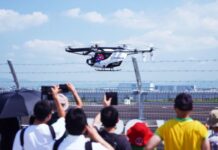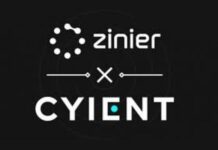bitsensing, a leading provider of advanced radar solutions, announced that it has signed a three-way Memorandum of Understanding (MOU) with the Autonomous Vehicles and Embedded Systems (AVE) Lab of Korea Advanced Institute of Science and Technology (KAIST) and ZETA Mobility to advance and commercialize AI-powered 4D imaging radar technology for the automotive sector.
The MOU aims to leverage each party’s strengths to co-develop a real-time, embedded AI-based solution that enhances the performance of 4D imaging radar—one of the most critical sensors for autonomous driving and Advanced Driver Assistance Systems (ADAS).
Under the agreement, bitsensing will provide its high-performance 4D imaging radar hardware platform, KAIST AVE Lab will contribute AI algorithms based on radar signal processing and sensor fusion, and ZETA Mobility will offer large-scale automotive datasets and embedded AI expertise. Together, the three organizations will collaborate on research and development (R&D) to accelerate commercialization.
Unlike conventional radar, 4D imaging radar captures not only distance, velocity, and direction, but also elevation (Z-axis), enabling highly accurate detection and classification of objects in complex environments. Thanks to radar’s inherent robustness in rain, snow, and fog, this technology ensures consistent performance under adverse weather conditions—making it indispensable for the safety and reliability of autonomous vehicles. Through this collaboration, the partners expect to significantly improve the recognition and classification accuracy of vehicles, pedestrians, and infrastructure on the road.
“4D imaging radar is a key sensor for autonomous driving that demands both high precision and all-weather reliability,” said Jae-Eun Lee, CEO of bitsensing. “By combining bitsensing’s proprietary radar expertise with the AI and dataset capabilities of KAIST AVE Lab and ZETA Mobility, we are taking a major step forward in bringing next-generation radar solutions to market.”
Professor Seung-Hyun Kong of the AVE Lab at the Cho Chun Shik Graduate School of Mobility at KAIST said, “This agreement is particularly significant as it represents collaboration among institutions that possess core technologies essential for developing artificial intelligence for 4D radar.” He further added, “Bitsensing, specializing in high-performance 4D radar hardware; ZETA Mobility, developing embedded AI-based data processing and system integration modules; and KAIST AVE Lab, a leading group in AI research for surrounding object recognition using 4D radar, will combine their unique expertise. Through this partnership, we aim to lead the world in developing and commercializing advanced AI-embedded 4D radar systems.”
Hyunseok Lee, CEO of ZETA Mobility, stated. “This partnership, through which specialized institutions collaborate to solve technological challenges and develop world-class solutions, is extremely meaningful. ZETA Mobility will leverage our embedded AI expertise to contribute significantly to advancing and commercializing autonomous driving technologies.”
The three parties will pursue phased cooperation—including joint R&D, performance validation and field testing, and technical advancement—to drive real-world adoption of AI-based 4D imaging radar in the automotive industry.


















